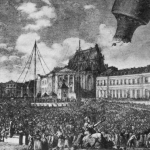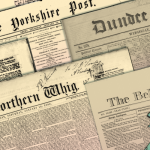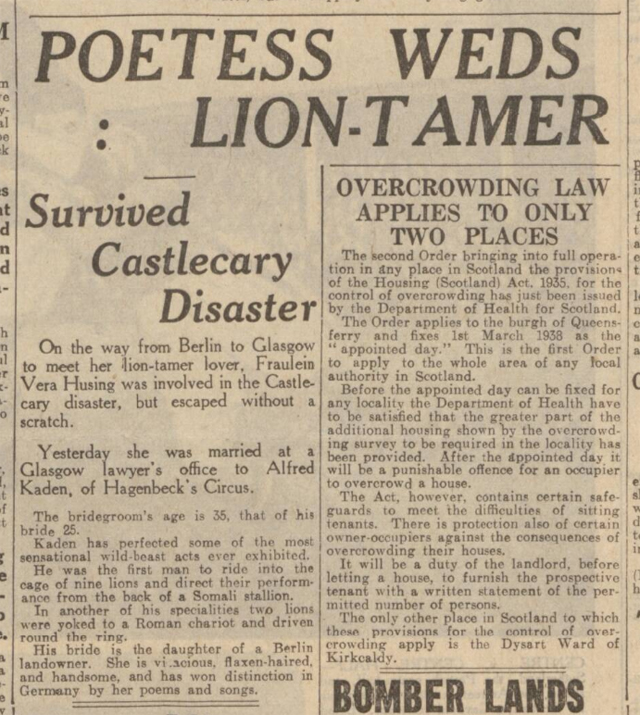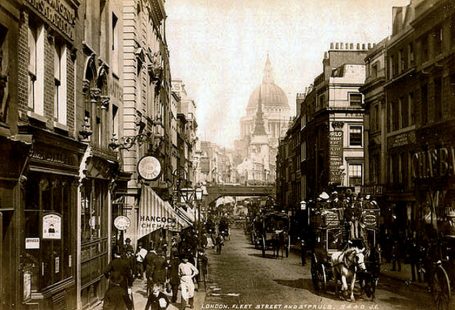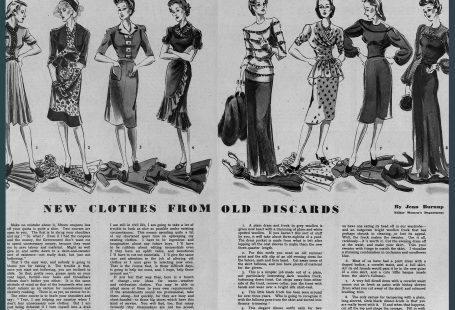In this week’s episode, singer Lulu traveled to her home-town of Glasgow, Scotland, to discover more about her mother’s family. Having been sent to live elsewhere as a baby, Lulu’s mother did not have a relationship with her parents, and so Lulu knew very little about the family. With the help of archivists, historians, and historical sources, Lulu was able to reconstruct the story of a family struggling to make love work across religious divides in 1920s Glasgow. We used our historic newspapers to explore the events and themes in the episode.
Discover our Glasgow Newspapers
The Glasgow of Lulu’s maternal grandparents was one of poverty and community divisions. The Irish Catholic population had grown considerably throughout the nineteenth century. In 1906, The Aberdeen Press and Journal claimed that the Catholic population had grown from just 70 to 325,000 in a hundred years.


Although large swathes of the Protestant community also lived in poverty alongside the Catholics, they were at odds, divided by religious beliefs. Hugh Cairns, Lulu’s grandfather and a Catholic, appears to have participated in altercations between the two groups: he was imprisoned for assault during ‘marching season’. His participation in these events, however, did not prevent his falling in love with a young Protestant girl.


The religious divide affected the young couple’s ability to be together. An attempt was made to ship Hugh off to the other side of the world, but he returned and the couple went on to have two children before marrying in a civil ceremony. A religious ceremony was not possible because of their different faiths.
Attitudes towards ‘Irregular Marriages’,,as they were called, were also divided. As might be expected the clergy objected to them:
One cannot shut one’s eyes to culpability of the law in regard to the “cheapening” of marriage. The Law regards the “irregular” or “clandestine ” marriage of the same validity or binding force as the regular, or Church, marriage. Marriage, indeed, is, according to our Law, a mere contract, just as is the buying or selling of a pound of butcher meat.
Others, especially those performing the ceremony for a fee, felt differently:
“Irregular ” Marriage. Sir, —It appears to be established that “irregular marriage” (1) Is legal (2) Is expeditious. (3) Is relatively cheap. (4) Is increasing in demand. (5) That the Church cannot supply the demand; but (6) I can. Q.E.D.


Despite marriage and, eventually, seven children, Hugh Cairns seemed to be incapable of staying out of trouble; he was imprisoned ten times in as many years. A long scar on his face seemed to indicate that he may have been involved with a ‘razor gang’. Given the notoriety of these gangs and their strong association with Glasgow, it was surprising to find that, in fact, these gangs were most associated with Sheffield rather than Glasgow in historic newspapers. Indeed an allusion to their being a trademark of Glasgow life by the BBC resulted in an apology being printed in the Daily Record in December 1945.
I feel,” wrote the Lord Provost. ‘ that this was an irresponsible and unwarranted slur —entirely inaccurate as happens—and one which cannot pass unchallenged. I wish to express in the strongest possible way my concern at the reference, which has brought me many telephone calls from people of repute protesting about the matter. I shall be glad, therefore, if you, as Scottish Director, will make this protest known in a responsible quarter.”
Historic newspapers enrich our understanding of our ancestors’ lives, and the places and events they lived through. They can help us separate fact from fiction and allow us to recreate the society our ancestor’s lived in, helping us to understand their circumstances and decisions.
Register now and view 3 pages for FREE


